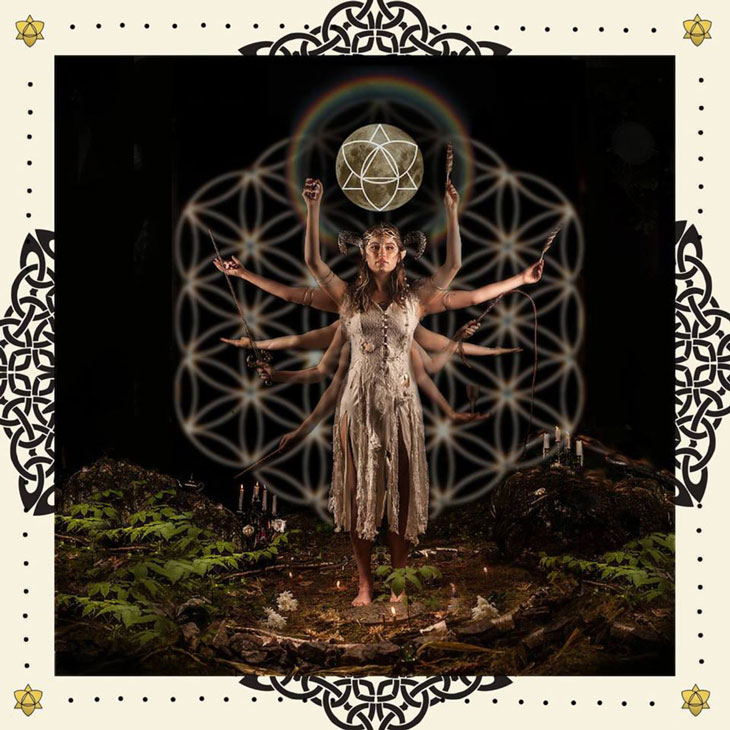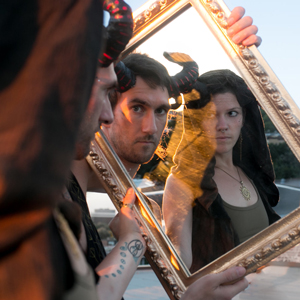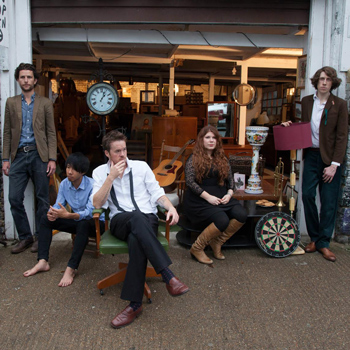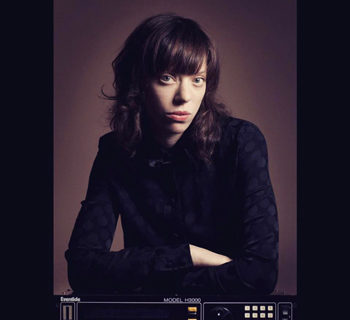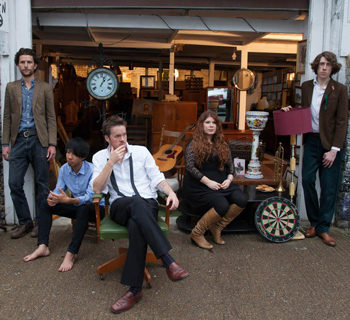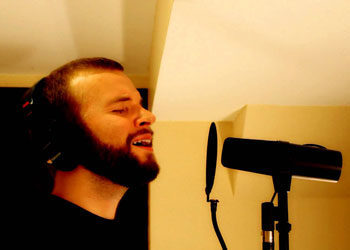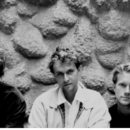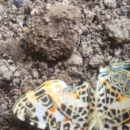7 Questions with KyAzMa
William Moon and Christina Enigma comprise the experimental electro-folk duo KyAzMa, based in Montreal. Their first album, The Magician's Mirror, released in October 2016, won them praise and fans with their erudite lyrics and a rhapsodic blending of acoustic and electronic musical elements. In January 2017, I sat in on their acoustic set at Le Divan Orange in Montreal. Their musical synergy was incredible; I was immediately impressed by how just a guitar, piano, and two voices were able to convey the same fullness of sound on their album.
After their set William and Christina sat down to discuss their artistic partnership, individual backgrounds, and the making of the album.
Rawckus: What does "KyAzMa" mean, and why did you choose this name?
William Moon: I studied philosophy, and the philosopher I was most interested in was Maurice Merleau-Ponty, a guy from the [19]’60s. One of his concepts in his unpublished manuscript was the chiasm. The idea was derived from the place in the brain where the optic nerves of the two eyes meet: the optic chiasm. He extended that concept and started to use it to describe things like the crossing of perception, like where two peoples’ eyes meet or the body being touched or feeling touched–that oscillation.
We see ourselves doing a lot of crossing in terms of electronics and acoustics. When we throw shows, we try to incorporate different types of art like live painting or burlesque or all kinds of different things.
How do you divide your musical responsibilities? Who plays what?
Christina Enigma: William is especially interested in the electronic component. Never in my life have I been interested in that! I've always been into the roots of the organic, acoustic stuff. I bring in a lot of gadgets and gizmos that make strange sounds.
How did you write the songs for Magician's Mirror?
CE: William pretty much wrote that whole album, guitar and lyrics, over the course of almost 10 years He manipulated the beats over the years, too. When I came in we worked on harmonies and structure to make the songs more direct and precise; the idea was to print the album to vinyl, and we had to be very strategic about our song structures.
Tell us about your musical backgrounds.
WM: When I was young I took guitar lessons from a guy named Paul Sartori under the water tower in Stittsville [Ontario, Canada]. He was an old hippie guy. I didn’t have any musical training other than playing guitar and pop songs. I got into producing electronic music when I first started going to university, I guess. I got really interested in bands that had worked in Canada, and then just started trying to make my own beats. I've been doing that now for many years.
CE: I grew up playing piano. When I moved away from home I couldn't take the piano, so I got a guitar. Basically everywhere I go in the world, I bring the guitar. I make good connections and am able to network. I've done busking in the streets and stuff. I was in Africa for a while learning percussion and rhythm.
I've always been very interested in percussion and rhythm. The piano is exactly that. I always played music. I never wanted to do it as a profession, even though my mother tried to get me into it—it was always an outlet of emotion for me.
Who were your mentors?
CE: When I was 15 I was at the public library and found Janis Joplin while looking through the CDs. She looked really free and fun to me. I didn’t know anything about her, but she looked great, so I scooped her up. I would have these gatherings at my place and put her on in the background, and everybody would be like, “How is that cat dying?” I thought that it was cool and great, so I felt linked to Janis for a while.
WM: I would say that psychedelic drugs were my primary mentors. I see a valuable lesson that they teach that should be treated with respect. Also David Morris, my supervisor when I was studying philosophy, was a big influence.
As I said earlier, I was also inspired by Merleau-Ponty. His contribution was largely about bringing embodiment back to philosophy. He talked about things like the blind person’s cane being an extension of his perception.
What's behind the title track, "Magician Man?"
WM: That was one of the reasons why this band started. It was either the first or the second song that I’d ever written. I wrote it maybe 10 or 11 years ago. I was studying Plato at the time, reading "The Allegory of the Cave," so that was in my thoughts.
I was also having an experience with a friend of mine. I was having a hard time finding a common reality and was experiencing a lot of mistrust. It’s kind of hard to remember, but I was in a big communal house in Ottawa at the time, before I moved to Montreal. I was just going through this experience and thinking about Plato’s "Allegory of the Cave" and how I was going to pass through these stories into the truth beyond them.
What's next for KyAzMa?
CE: We have a few songs that we haven’t recorded yet, but we’re getting there with them. There’s also the matter of thinking about whether we're just going to do a single, an EP, or consider having a whole other album. Right now, we’ve got the album; we’ve got all of this stuff that we want to put out there, so we’re trying to focus on applying for festivals and grants and getting funding to put out what we already have. For me personally, I would like to be working on new stuff, just to have different inspiration and outlets.
WM: We’re working with a cellist and a flute player, which is a really wonderful combo with us. It’s surprising how much more space there actually is with more instruments, because our music is quite dense, but with those guys we can step back and get more experimental. It’s really opening up a lot of creative doors and new ways of expressing, so I’m really looking forward to jamming more with those guys and developing our lives and shows more. I think that this will help with our song writing.

